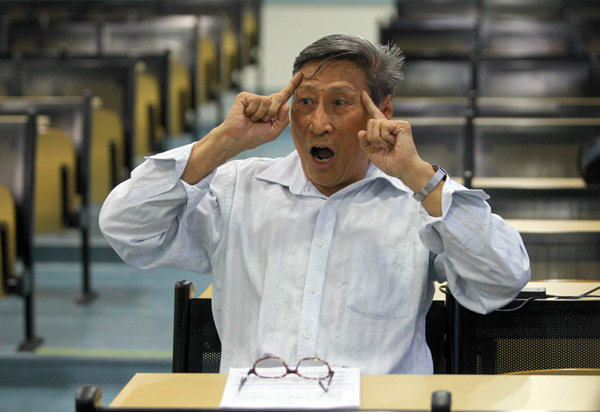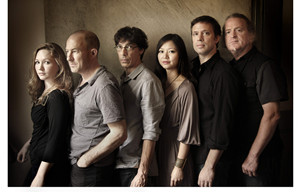Caustic composer
 |
|
[Photo by Zou Hong/China Daily] |
It was a great blow to the ambitious musician. He was comforted when his work was played in Taiwan.
In 2001, when Krzysztof Penderecki, who is known as Poland's greatest living composer, visited China, he called Wang's Symphony No 4 "a masterpiece" after listening to it. "Chinese composers have been isolated from the West for decades but Wang can break the barrier and find his own musical language," Penderecki said.
During the ongoing Beijing Modern Music Festival, held in Beijing from May 18 to 24, people will get to listen for the first time to another of Wang's works, Quartet for Clarinet, Violin, Cello and Piano, which was composed in 2002.
The form of quartet was used by French composer Olivier Messiaen in 1940, when he was a prisoner of war. Titled Quartet for the End of Time, the piece was first performed by Messiaen and fellow prisoners.
Wang did lots of research on the piece and adopted the form of quartet into his own composition to express anger, violence, revenge and despair.
Like his other works, he added elements of local folk music of Shanxi and Shaanxi provinces into the symphonic piece.
Russian composer Sofia Gubaidulina sings the praises of Wang's quartet. "Its vision is vivid, and its impression is profound. The cello solo at the beginning is like an enormous protest. The changes of tonality, the dramatic contrast and the unique conception indicate that this piece of work originates from a master," she says.
Related: Metro station music to Shanghai's ears
| Music on the wing of a dream | Living the indie dream |
"I spent three months to find the right expression for emotions such as anger, mocking and struggle. Again, folk music jumped into my head. I just can't leave it. It makes China's symphonic music works unique and different," Wang says.
Born in Henan province, Wang spent his childhood in Pingliang, Gansu province, which, he recalls, is a small poor place. "It has no railway even today," he says.

























